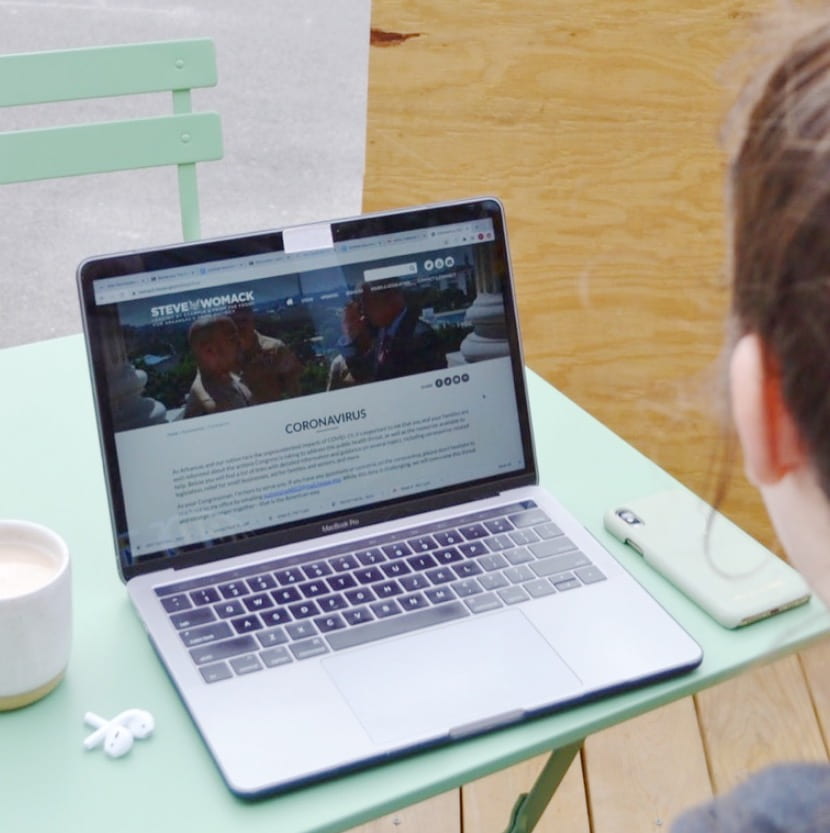By Hunter Simmons October 16, 2020
At the outbreak of COVID-19, my housing facility closed and I was forced to move back home. Living in Bentonville, Arkansas, for the remainder of the semester and majority of the summer led to experiences that shaped my opinions on how my hometown and the larger community of Northwest Arkansas is handling the outbreak.
A week after I moved home, I was so bored that I started applying for jobs. My options were limited as I looked for work in the midst of a pandemic. However, I knew that liquor stores were deemed essential businesses by the state of Arkansas and according to Nielson insights, “brick-and-mortar alcohol dollar sales were up 21 percent.” I took a shot and applied to a liquor store in Bentonville. I was hired on the spot.
Most of the employees were over 45 years of age and thought I was too young to sell alcohol. What shocked me while working at this establishment was that nearly all of the management and general employees did not believe in the new coronavirus.
I remember talking to my shift manager one day specifically. He told me he does not know anyone who has the disease and doesn’t believe it is deadly.
I responded by sharing with him that my granduncle was diagnosed and passed away from COVID-19. To my surprise, he replied by asking me if he was for sure diagnosed because “doctors are inflating the numbers.”
I was shocked. At any other time, most people would respond to the death of a family member with condolences and care. A lot of conversations I had at work led me to feel disheartened by Arkansans’ responses to the health crisis.
People were entrenched in a battle that, in their minds, had to do with personal rights and liberties while people down the road were dying.
At my previous job that I was furloughed from due to public schools shutting down, my students, whose parents worked in factories in Springdale, Arkansas, were being directly affected and had family members who were passing away.
According to the CDC’s report on Northwest Arkansas, “Hispanic/Latinx communities make up 45 percent of the cases in the area, while they represent only 17 percent of the population.”
I could see the direct effects of COVID-19 on my neighbors but trying to express the state of our community to my co-workers led to arguments and disbelief rather than care and compassion.
This summer I also worked at Rep. Womack’s office in Rogers. Most of my days were spent answering constituents’ phone calls, which often had to do with COVID-19.
Arkansans would be enraged that they had to wear masks in Walmart or that schools would dare try to make students keep their masks on citing that it was “against their constitutional rights.”
I would often reply with statistics on cases and direct guidelines from the CDC website advising to cover one’s mouth and nose with a mask when around others as the disease could be spread to others even if one does not feel sick.
People would respond with information they found on Facebook stating that wearing masks leads to asphyxiation and does nothing to protect them. They would also express disbelief in the CDC numbers and quote President Donald Trump to back up their disapproval of official statistics.
I looked for helpful information on Womack’s website that I could directly quote and inform callers of, however, there were little to no direct stances on anything related to the new coronavirus.
The entirety of Womack’s information on his website in regards to the pandemic has to do with small business assistance, unemployment benefits or stimulus checks. Not to say that any of that information is bad, but what made me concerned was that not a single platform of his offered information to his constituents on precautions to take to prevent the spread of COVID-19.
Things such as wearing a mask, washing your hands, social distancing and where to get tested could not be found.
Not giving guidance on how to behave and take precautions to protect yourself and others perpetuates Arkansas acting carelessly and irresponsibly.
These two different employment opportunities I had over the summer shaped my perspective on the new coronavirus and how my community is responding. If nothing else, it urged me to do a better job of informing my friends and having hard conversations rather than saving face when someone says something that is not backed up with fact.
It will take the effort and care of everyone to overcome the pandemic and protect groups that are at risk.
